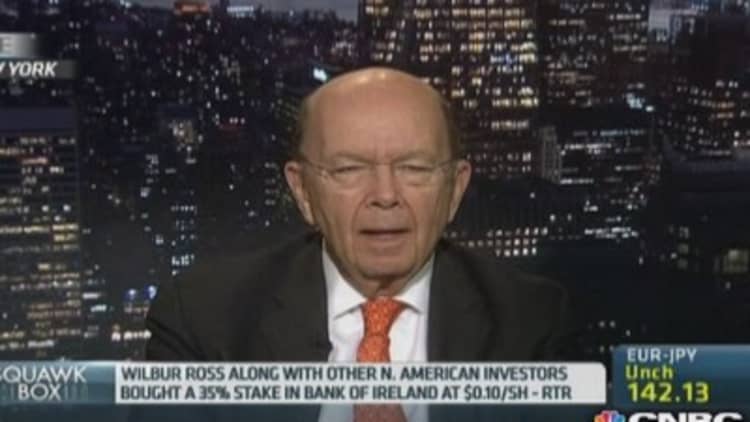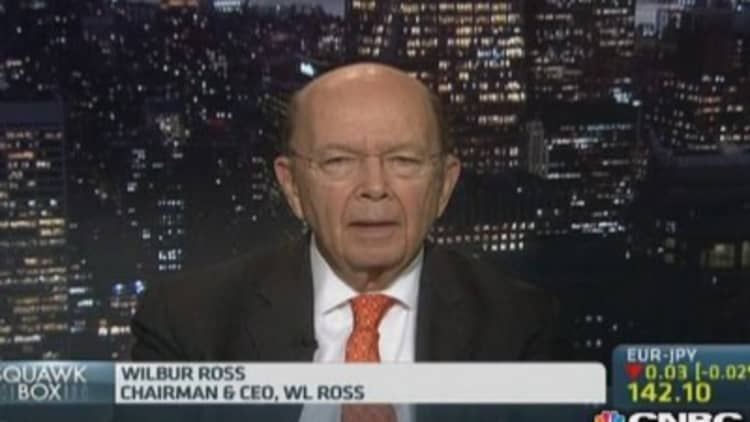
Europe's beaten down property assets are starting to look attractive, especially in places such as Ireland and the Mediterranean, U.S. billionaire investor Wilbur Ross told CNBC Tuesday.
"Some of the projects that were so ill-considered they never should have been done, those'll revert to farmland," Ross said.
Read MoreWhere Wilbur Ross sees more opportunity
"In the resort areas [of Europe], there's a big influx of outside people, British people, Russian people and German people buying those properties in the resorts. So I think that part is starting to be on the mend," he added.
Property prices in much of Europe fell sharply in the wake of the 2007 global financial crisis and the European debt crisis. In Ireland for example, home prices fell around 57 percent between 2007 and 2012. In Spain, real estate values fell 23 percent between 2008 and 2012.
But Ross noted that commercial property in Europe does not have as much overcapacity as in other segments of the market.
In Ireland, "you can buy a well tenanted first-class building in a big city at a 7-7.5 percent capitalization rate," which is a property's expected rate of return based on its income, Ross said.
"That's quite a good return by European standards or by global standards," he said.
Read MoreWilbur Ross, Fairfax to sell 6% of Bank of Ireland shares
In Spain, properties are offering similar capitalization rates, Ross added.
"There they tend to not be as fully tenanted. And therefore you have a little bit more upside if you can fill in the rent rolls," he said.
Unemployment woes
Spain's high unemployment rate at around 26 percent suggests filling those rent rolls may not be easy. But Ross believes the headline data may not fully represent the country's job situation.
"You go down the streets of Madrid, you go down the streets of Barcelona, and you know what? You don't see any beggars," he said. "That makes me wonder if the official figures may not be capturing a lot of people who may be working in the grey economy."

Ross is well-known for bargain hunting in post-crisis Ireland. He was part of a group of investors that bought a 35 percent stake in Bank of Ireland in 2011, when the stock was trading around 0.10 euro a share, which was around $0.07 at the time. The stock is now trading around 0.31 euro, or around $0.23.
"You really have to be a believer in the economy," Ross said. "We were believers in the high tech nature of the Irish economy and that they had this one time problem with the banking industry and that they therefore could readily overcome it. And happily it's turned out to be the case."
(Read MoreEurope Property Investors Rediscover Risk Appetite)
After bailing out its banks in the wake of the financial crisis, Ireland's public debt soared from 25 percent of gross domestic product (GDP) to over 123 percent, its economy endured two recessions in five years, and unemployment soared to 15 percent. The government embarked on an austerity drive which saw welfare benefits slashed and public servants' pay cut.
Late last year, Ireland officially became the first country in the euro zone to exit a bailout program.
Ross noted the path to recovery was less clear in southern Europe.
"It's not as clear that those societies will accept the same stiff medicine that the Irish did," he said.
"Each month they do make progress toward societal reform, we get a little closer to doing something there."
—By CNBC.Com's Leslie Shaffer; Follow her on Twitter @LeslieShaffer1

